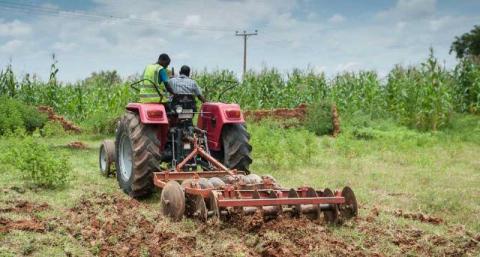
Every other year, Africa grapples with the issue of hunger which affects millions across the continent. Various factors that contribute to this crisis include: floods, droughts, poverty, conflict, instability, and economic downturns.
A recent report from the British Red Cross highlights the severity of the situation, declaring the worst food crisis in over 40 years across communities in Kenya, Ethiopia, Nigeria, and Somalia.
Sub-Saharan Africa is home to approximately 146 million people suffering from acute food insecurity, with Malawi witnessing 3 million people, constituting 15 percent of its population, grappling with this challenge.
This alarming trend is a significant obstacle to development, as well-fed individuals are better positioned to engage in developmental activities. Addressing food insecurity therefore is not just a socio-economic issue but also a human rights one.
Africa possesses vast arable lands and untapped potential, and unlocking these resources is important for achieving food security.
Training and capacitating smallholder farmers in climate-smart agriculture techniques can significantly enhance production.
One essential shift that can revolutionize agriculture is the transition from traditional hand tools to mechanization, a key driver of agricultural development.
Agricultural mechanization involves the use of machinery and equipment, ranging from modern hand tools to sophisticated motorized equipment, to perform agricultural operations.
To make Africa food secure, there is an urgent need for the continent to embrace mechanization.
Farmers must adopt this approach to boost productivity, enabling year-round farming through practices like irrigation, diversification of crops, and adapting to climate change, a significant contributor to hunger.
One of the African countries that has experienced positive economic outcomes through investments in mechanization is Ghana. By embracing modern agricultural technologies and machinery, Ghana has significantly increased its agricultural productivity and overall GDP.
The implementation of mechanized farming practices has led to improved efficiency in cultivating crops such as cocoa, a major export for the country. Ghana's mechanization efforts in the cocoa sector, in particular, have resulted in higher yields and enhanced product quality.
Consequently, Ghana has seen a substantial increase in its agricultural exports, contributing to the growth of its dollar reserves. This economic boost strengthens Ghana's financial position and provides valuable resources for continued development and investment in the agricultural sector.
While the benefits are evident, accessing agricultural machines remains a challenge for many farmers in Africa due to their cost and the required operational knowledge.
Governments, civil society organizations, and NGOs working to improve agriculture need to collaborate in providing farmers with both knowledge and equipment for mechanization. This collaborative effort can play a crucial role in alleviating hunger on the continent, in the mid to long-term.
A 2019 report by the United Nations Mission in South Sudan highlighted only 12 African countries, including Ethiopia, Malawi, Mali, Morocco, Rwanda, Tanzania, and Zambia, as exhibiting robust growth in mechanized agriculture.
However, three years later, Malawi and Ethiopia are among the countries grappling with food insecurity, revealing a lack of sustained commitment to mechanization.
This highlights the necessity for collaborative efforts among governments, NGOs, civil society, and the private sector to support smallholder farmers effectively.
The African Union (AU) presents a platform to enhance partnerships and refocus strategies toward addressing hunger as part of the continent's overarching vision, Agenda 2063.
By collaborating on mechanizing agriculture, African nations can collectively achieve food security, creating an opportunity to share surplus food with those in need, ultimately saving lives and fostering overall development.
Drawing inspiration from successful instances, such as Malawi's donation of 10,000 metric tonnes of maize to Lesotho and Swaziland during President Bingu wa Mutharika's era in 2007, Africa can replicate this model continent-wide. The success in Malawi was attributed to the effective implementation of agriculture strategies, showcasing the potential for widespread success.
Commendably, the African Union's Agenda 2063 aims to phase out hand hoes by 2025. While the feasibility of this goal may be debated, collaborative efforts are crucial to building the supply-side capacity for mechanization across Africa.
By uniting in this endeavor therefore, Africa can overcome its hunger crisis and pave the way for collective development, akin to the collaborative support witnessed during times of conflict.




